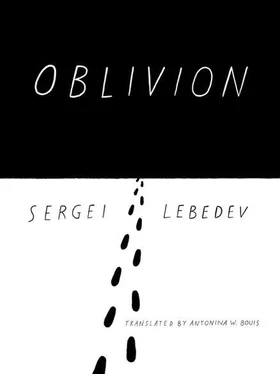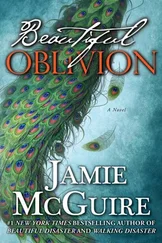I knew that the engineer would never learn whom he hauled in the prison car, and his brother, exiled to live in a place where the transcripts of meetings of the regional party committee were recorded on birch bark and where paper was more valuable than nails, would never send a line about himself.
The train started on the siding. As a child, when you went out to the railroad tracks to count railway cars and guess what was in them, you sometimes encountered a train so long it seemed never-ending, the only one in the world. The train extended and extended beyond the turn, steam puffed, semaphores glimmered; eventually the cars ended, and your eye was caught by the locked door of the last car; it seemed that it was slightly ajar, and that opening was the last chance to do something, to force the dream to change its course; but the train was leaving, and the door remained before your eyes: this was the beginning of the third dream.
The door at first retained its look, then it became just a door, then it changed—it was different every time I had the dream; the door to a bedroom, living room, office; wood, metal, knob, lock—everything changed. Only one thing remained—it was ajar, as if the instant when the door was almost shut was plunged into subjective time that did not have the duration of a dream for the sleeper, and it lasted endlessly. The door was no longer open but not yet shut; and I knew that if it did close it would never open again, it would vanish leaving an impenetrable wall.
I reached toward it, looking for a wedge to hammer between the door and the jamb—and I almost managed, but I didn’t; if only to save what was beyond the door with my gaze, I looked through the keyhole—and fell into it, flew through space with a multitude of other doors, shutters, gates, hatches, and well covers. Everything that could be closed was shut—desks, coffers with letters, mailboxes, safes, oven doors, notebooks, textbooks, stamp albums; the whole world was folding up like a big book that would be wrapped in iron strips, padlocked, and placed under a bushel.
There, behind every door, things left behind by the people taken away in the train were dying; lenses in eyeglasses cracked, the thin wire frames of pince-nez bent out of shape, the amalgam came off mirrors in black cancerous spots, the images of faces once reflected in the mirrors faded and dissolved, wallpaper peeled from walls, twisting like ribbons of paper streamers; corroding the corks, iodine evaporated from dark yellow bottles, the belts in sewing machines fell apart, pencil lead crumbled, records shed black powder; wood and cement expelled nails and bolts, glue holding pages of photo albums dried out, elastic failed in underwear, buttons fell off clothing, and fur collars shed; the letters wore out on typewriters, piano strings burst, keys and pedals stuck, and pages eaten with the rust, like blood, of paper clips, released the faint aroma of handwritten letters as the ink faded.
Not a single room in my dream had people; rooms, corridors, stairwells, attics, cellars, entryways, and cupboards alternately formed into a dizzying sequence and fell apart like shards, then joined up again, threaded onto the trajectory of my movement; but I did not encounter a single person. Their absence was the kind that happens only in dreams or in recollections of early childhood: it seems that people had just been here, had just left, hiding from you, and the more clearly the air holds the residual warmth of life and the echo of voices, and the floorboards remember recent steps, the more tormenting is the inability to understand where they went and where to look for them. In childhood this inability makes you bawl, for it is perhaps the first experience of despair: your mother and father are so obviously, so definitely not there, their absence is commensurate with the collapse of the universe; without finding them you cannot believe again in the world, you cannot acquire the strength to live, because not means that there is a hole in the world where people vanish—and you could vanish, too.
Things did not die silently; almost every sound a thing makes comes because something is being done to it, but here things had their own voices; their speech is a thousand times slower and more protracted, and usually we do not hear the faint rustle of newspapers wrinkling, the quiet cracking of aging porcelain or glass, the mosquito whine of the filaments in lightbulbs. But in the empty rooms where time was rapidly running out, all these creaks, cracks, and rustles combined into a primal sound.
Sometimes a dying person’s death rattle sounds as if the human and animal no longer live in him and only the third component of his being, unknown to him, is left, related to inanimate nature: this is the way clay in mud volcanoes pulsates and bubbles up in bursting blisters. And then, just before the end, speech returns to him.
The objects also screamed at first, as if they had become feral, and then, on the contrary, acquired something human in the unity of their sounds; they had absorbed the voices of their owners, their intonations, and now, dying, they tried to speak in the rhythm of those intonations. A strange speech ensued: to the human ear it sounded like interjections of a pre-language that directly expressed emotion in sounds—be it a moan of pain or an exclamation of joy—without mediating it in words. The fourth string on a violin is closest to the human voice, and every object seemed to have discovered the gift of the fourth string; it seemed that silent tension had lived in them and it could become sound only through dying.
Now it seemed that the things were falling into an abyss, bumping into one another, spinning, and screaming in horror almost like humans; the rooms and other spaces replaced one another infinitely, this sequence had no exit and no end.
Suddenly, I recognized the cacophony, and at the point of recognition the movement through rooms slowed and soon stopped. From my childhood memory, from the recollections of the same age as that of the apparent loss of my mother and father, came an image: a suspension bridge across the river, stretched on thick ropes, and the sinews of those ropes are severed by a saw with tiny, angry teeth like those of a mouse, the ropes break, but the bridge remains suspended in air as if by the power of habit of those who walked on it, and falls into the water only after a few seconds.
Creaks and squeaks, a crackle and the long, feminine tender singing of the burst ropes extending in an arc over the river water as if in an attempt to recreate the bridge in sound, in the singing arc. And my internal cry, because I could not understand why they needed to destroy the old bridge in order to build a new one, and the firm conviction that the new one would not be better, even though there was no scarier trial than stepping onto the rotten boards and swaying over the rocks below the crossing in rhythm to someone’s heavy steps—would not be better because the ability to be better was taken away, just like that, in one instant, with a knacker’s ardor, with the desire for definitive change, by dumping the old bridge into the water, when they could have taken it apart, found a use for the wood and metal.
My memory of the demolished bridge extricated from memories of long ago resembled a bush torn out of the ground with a ball of soil hiding the roots: the demolition of the bridge was the epicenter of the memory, and everything else moved into the shadow: the village houses on the riverbank vanished, the church vanished, and even the banks lost the contours of a strictly defined place, turning into an image of riverbanks in general.
The river had risen, as if there was flooding; it was no longer water flowing in the river channel, but the entire world palpable in memory became the channel and the overflowing banks and the sky all became a single current in the midst of which the river was a chute, rapids that gather before a waterfall.
Читать дальше












